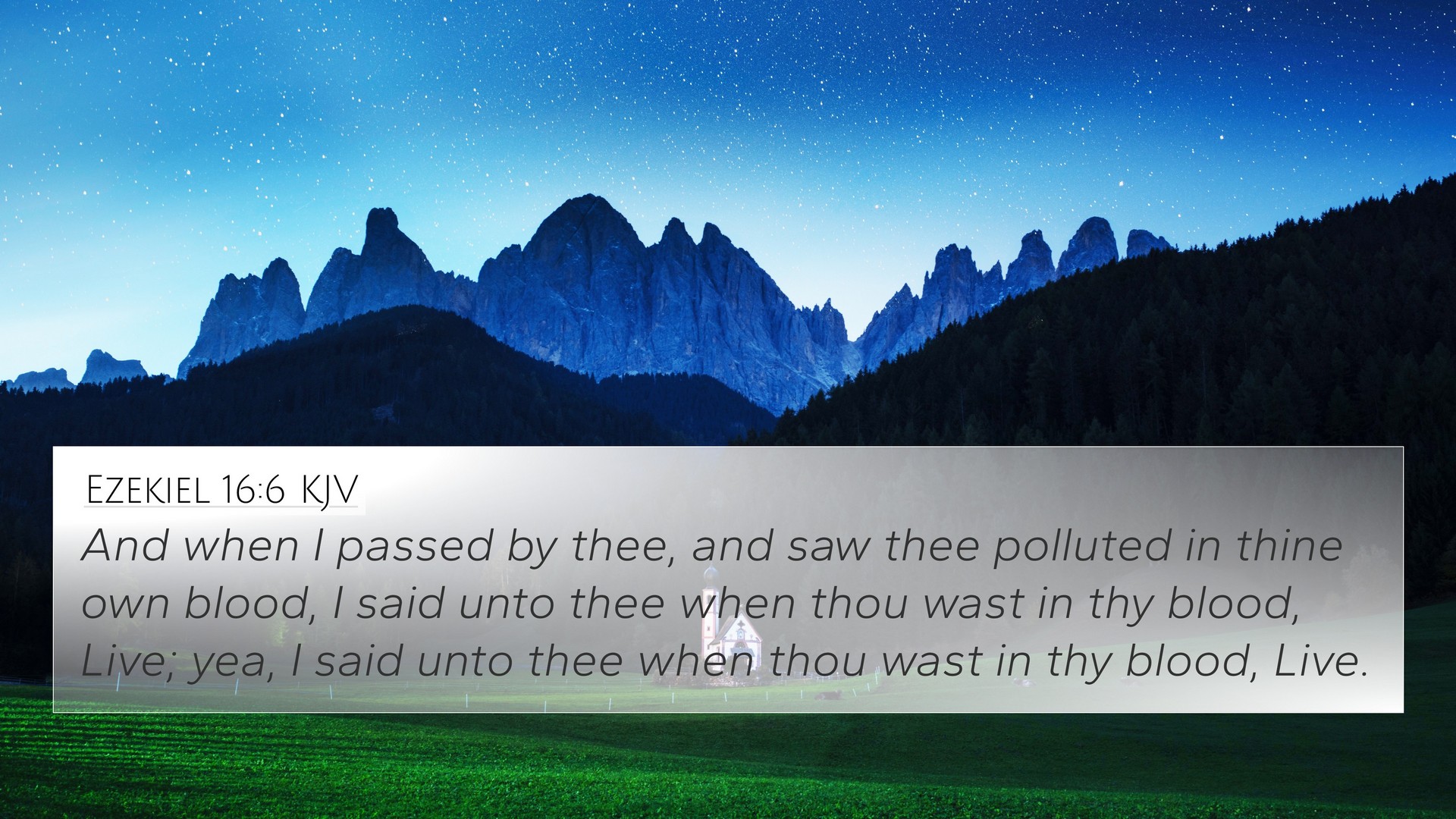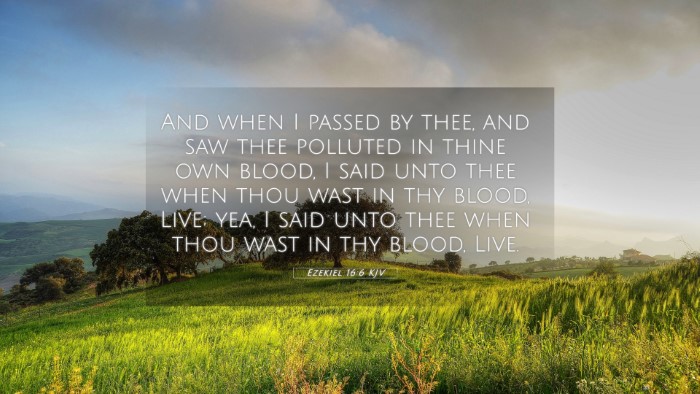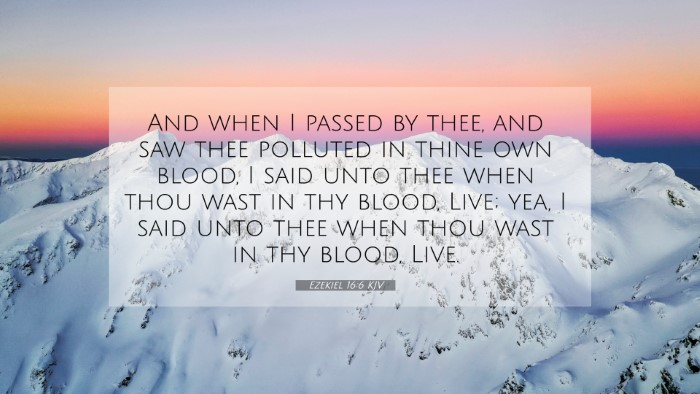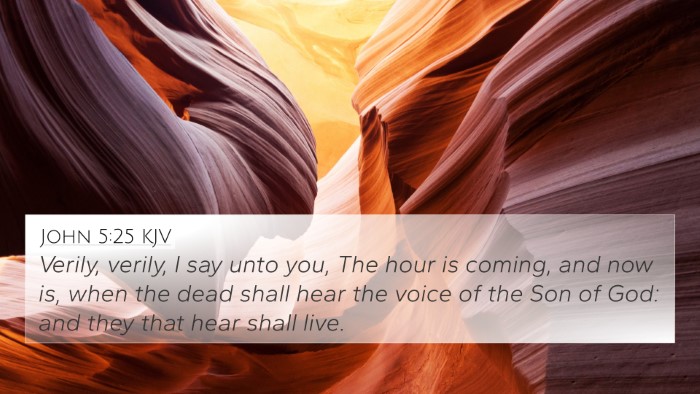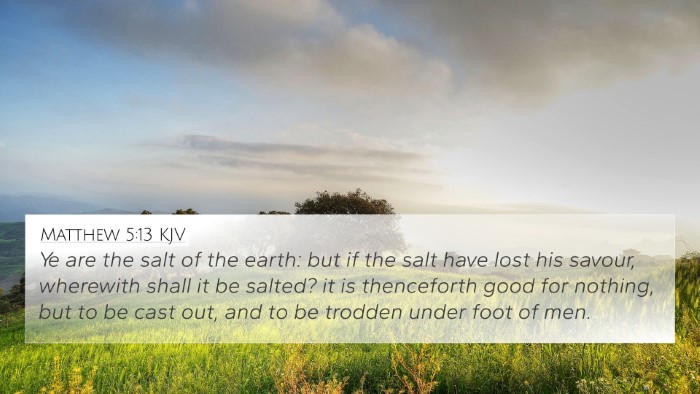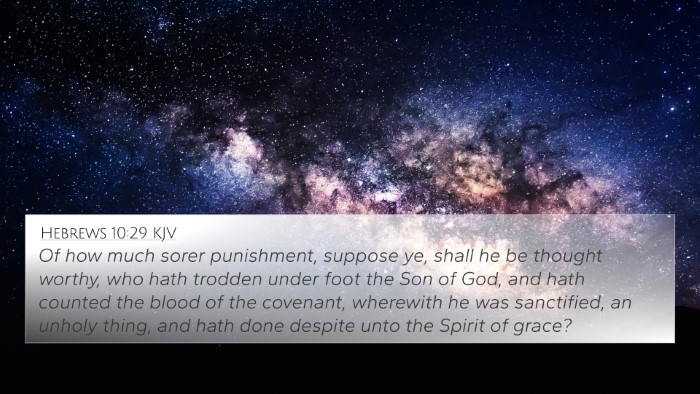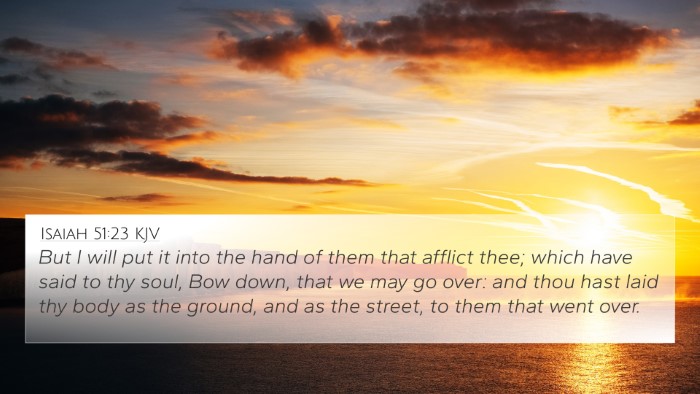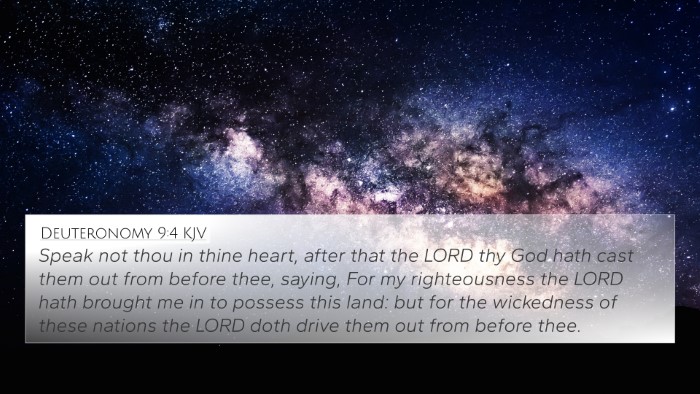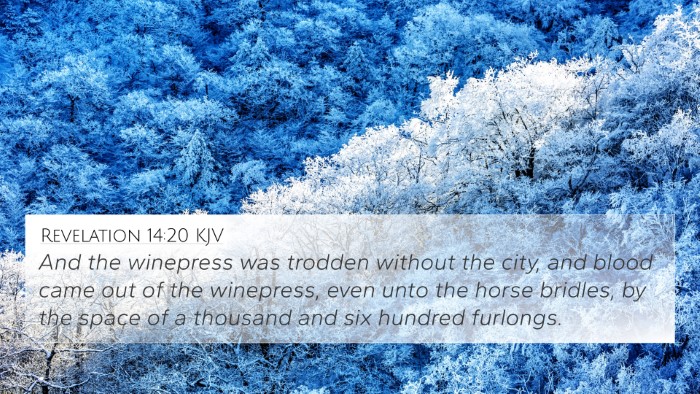Ezekiel 16:6 - Interpretation and Summary
Ezekiel 16:6 states: "And when I passed by thee, and saw thee polluted in thine own blood, I said unto thee, When thou wast in thy blood, Live; yea, I said unto thee, When thou wast in thy blood, Live."
This verse carries profound meaning as it symbolizes God's grace and compassion towards His people, especially in their most degraded state.
Summary of Insights
The following analysis combines interpretations from several public domain commentaries, highlighting the rich theological and practical implications of this verse.
-
Matthew Henry's Commentary:
Henry emphasizes the dire situation of Israel as a symbol of a people in spiritual desolation. The imagery of being in blood represents the depth of their depravity, yet God, in His mercy, chooses to call them to life. This highlights the nature of divine intervention and the offer of renewal, signifying the promise of redemption.
-
Albert Barnes' Notes:
Barnes points out that the act of God passing by signifies His omnipresence and attentiveness to our sinful conditions. The repeated declarations of "Live" can be viewed as God's authoritative command that heralds both physical and spiritual revival. It serves as an assurance that regardless of how low one may fall, God's will to restore remains steadfast.
-
Adam Clarke's Commentary:
Clarke expounds on the significance of God's attention to the afflicted. He notes that the term "polluted" indicates a state of sin, suggesting that God’s call for life comes not as a result of human merit, but purely due to His grace. It reflects the unmerited favor bestowed by God, emphasizing the transformative power of divine love amidst human failure.
Thematic Connections
This verse can greatly be enriched through Bible verse cross-references, providing a broader context and deeper understanding of the themes presented:
-
Romans 5:8: "But God commendeth his love toward us, in that, while we were yet sinners, Christ died for us."
-
Ephesians 2:4-5: "But God, who is rich in mercy, for his great love wherewith he loved us, even when we were dead in sins, hath quickened us together with Christ."
-
Isaiah 43:1: "But now thus saith the LORD that created thee, O Jacob, and he that formed thee, O Israel, Fear not: for I have redeemed thee, I have called thee by thy name; thou art mine."
-
John 10:10: "The thief cometh not, but for to steal, and to kill, and to destroy: I am come that they might have life, and that they might have it more abundantly."
-
2 Corinthians 5:17: "Therefore if any man be in Christ, he is a new creature: old things are passed away; behold, all things are become new."
-
Philippians 1:6: "Being confident of this very thing, that he which hath begun a good work in you will perform it until the day of Jesus Christ."
-
Psalm 103:4: "Who redeemeth thy life from destruction; who crowneth thee with lovingkindness and tender mercies."
Tools for Understanding Inter-Biblical Dialogue
To dive deeper into the themes of Ezekiel 16:6, employing tools for Bible cross-referencing can facilitate a richer study experience:
- Bible Concordance
- Bible Cross-Reference Guide
- Cross-Reference Bible Study Techniques
- Bible Reference Resources
Application and Reflection
Engaging with Ezekiel 16:6 reminds believers of the profound truth that God's call to life is extended even in moments of deepest despair. This is echoed through various scriptures, making the connections between Bible verses vital in understanding God's redemptive narrative. Reflecting on this verse allows for personal application, inspiring one to consider how they can respond to divine callings in their lives.
Additional Themes for Cross-Referencing
The intersection of themes related to salvation, grace, and renewal is significant throughout both the Old and New Testaments, showcasing the continuity of God’s purpose:
-
Exploration of Grace:
The consistent theme across scriptures demonstrating grace reflects God’s nature, prompting believers to grasp the importance of divine mercy.
-
Spiritual Renewal:
The call for life resonates through the prophetic and apostolic messages, linking together the need for spiritual regeneration among believers.
Conclusion
Ezekiel 16:6 serves as a profound reminder of God's relentless pursuit of humanity, inviting all to experience His life-giving power. By utilizing cross-referencing Biblical texts, readers can uncover a myriad of scriptural parallels that further illuminate the richness of this verse and its implications for both individual lives and the community of believers.
